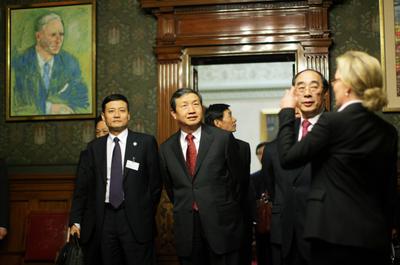At that time, the prices of many products, including food products, were directly controlled by the state. But even with those direct controls, there was no way even the that the government could contain inflationary pressures. The consumer price index (CPI) rose above 10 per cent in both 1985 and 1988.
Among all the sixteen articles of the 21 November edict, two appear to be the most important. The seventh article focuses on providing temporary price subsidies and the eight article proposes a linkage mechanism between social security payments and increases prices. After all, the poor are often hurt most seriously by inflation as their income grows more slowly that other incomes and food accounts for a high proportion of their total spending. It is critical to provide some assistance to the poor when the inflation rate is running high. From a long-term perspective, government policy should shift from supporting growth to supporting social security in order to ensure political stability.
The most striking feature of the entire document is absence of the term ‘monetary policy’. Monetary policy wasn’t mentioned even once.
Why?
One possible reason is that some prominent Chinese economists argue that the current high rise in the CPI reflects structural adjustment of prices, not overall inflation. If that’s the case, then we don’t need to apply monetary policy tools. But if general prices are rising at a fast pace, then it’s hard to argue that China is not experiencing an inflation. Inflation is a monetary phenomenon. In 1988, 1994 and 2007, there were also then economists who argued that the rise in the CPI was the result of structural price adjustment. Without seriously tightening monetary policies, inflation got out of hand in every one of those years.
Indeed, the policy measures suggested by Sixteen Articles are not only micro in nature, but also central planning in style. They call for better management of farms for the production of winter grain and oils. They require the railway department to arrange cotton transportation properly in Xinjiang. They order the state power grid not to cut off power supply to fertilizer factories and to close down illegally built corn processing factories. This is really going back in time. Is this really the second decade of the 21st century after thirty years of market-oriented reform?
PBOC (the Central Bank) seems like a lonely voice. Last Saturday, it raised reserve requirement again. But even that will probably not be enough. Why have food prices increased? There are surely factors in the production and transportation system that influence the pattern of price increases. But if prices are rising across board, then it is not a micro issue but a macro problem. Why have prices of agricultural products skyrocketed one after another? It is because we have too much money chasing not enough goods. And the real deposit rate is significantly negative. In other words, the monetary policy environment is encouraging everybody to speculate. If you don’t speculate, you definitely lose money. Speculation, of course, does not guarantee profits. And the government is busy cracking down on speculators. Every time the government does so, more speculators appear.
During the sixty years of China’s People’s Republic, we have learned well enough that administrative measures will not be effective in controlling inflation. On university campuses this is plain for all to see where the government often forbids university canteens to raise food prices. The prices do not change. But the portions become smaller and smaller.
Unfortunately the government is going back to the future again.
Yiping Huang is Professor of Economics at CCER in Peking University and in the Crawford School at the ANU.

